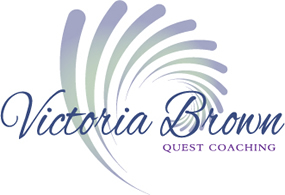Neurological Evidence
Recent neuroscience proves coaching helps us to create new wiring in the brain.
There is scientific proof that the brain demonstrates “neuroplasticity” and is more adaptable than we have previously thought; it can — and does — change with effort and intention. We can essentially “rewire our brains with our thoughts.” (Norman Dodge 2007)
Coaching supports us to develop positive new neural networks allowing clients to respond more calmly to stress, make choices more easily and access much more of the their creativity. (This is based on Functional Magnetic Resonance Imagine fMRI).
Coaching provides reappraisal (what is positive and negative about a situation), distancing (taking 24 hours to make big decisions), mindfulness (supporting clients to experience a calm certainty) and real long-term learning through time and solidified new habits. In a recent article, Vidyut states, “We remember best what we experience. We understand best what we identify with. We learn best by doing.”
There is evidence that reflecting on personal values, a key component of coaching, provides biological and psychological protection from the adverse effects of stress. In a UCLA study, individuals were subjected to a stress challenge. Those who were given the task of identifying their values and reflecting on them showed significantly lower cortisone levels (the body releases glucocorticoids, including cortisol, as a response to stress) in contrast to a control group subjected to the same stress test but not asked to identify or reflect on their values (Creswell et al, 2005)
Our amygdala — a small almond shaped part of the brain in the limbic system — plays a role in scanning for threats and, if it finds one, pushes us into “fight or flight” mode where our bodies become flooded with chemicals such as cortisol and forms of adrenaline. These stress hormones impact our ability to think clearly and often have us make poor decisions we come to regret later (Arnsten 2008).
Coaching provides a way to reappraise, or in coaching terms, choose a new perspective — which is an effective antidote to stress. When the client somatically (physically) , emotionally and intellectually inhabits a number of new perspectives, this experience create the potential for new neural pathways. Thus, choosing a new direction may not be as much of a challenge to the brain because a pathway may have been potentiated beforehand (sort of like digging a new ditch for water to flow in).
Current research shows that the most emotionally intelligent and effective people are those who can use the gifts of different parts of their brain together effectively; for example, empathy and intuition associated with the right hemisphere and logical and analytical skills in the left. (Siegel 2010)
Bottom line: coaching impacts the brain. Clients have a better ability to handle what is in front of them with more ease, make conscious choices and create new habits which in turn creates greater levels of success, balance and fulfillment.








